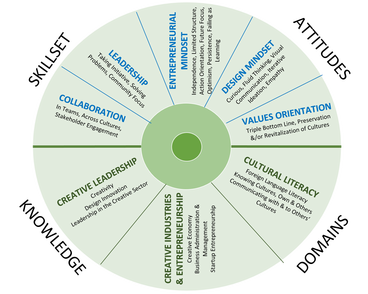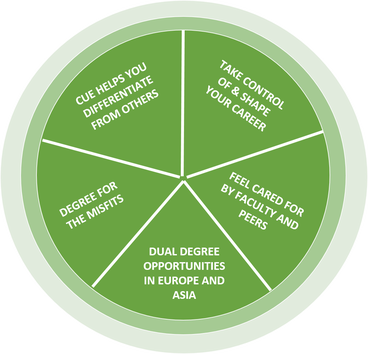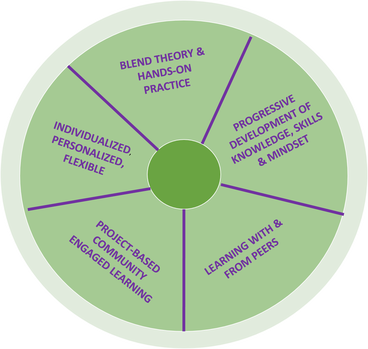The Cultural Entrepreneurship Major
Cultural Entrepreneurship is an emerging academic discipline that examines how cultural products traditionally associated with the fine and liberal arts, such as art, theater, poetry, and literature, but also cultural activities such as sports, music, food, and film events, are having an increasingly important impact on the growth of local, national, and global economies.
Knowledge Domains and Skills in the Major
Cultural Entrepreneurship, a non-traditional degree program informs students of three knowledge domains, those of creative leadership, creative industries and entrepreneurship, and cultural sufficiency. It equips students with the skillsets to collaborate effectively in teams and across cultures and to exercise leadership by taking the initiative to solve community and business problems. The design and entrepreneurial mindsets developed in the program enable students to be curious, fluid thinkers with a propensity to act while treating failures as learning opportunities. Most importantly, a values orientation underpins and guides their thoughts and actions.

Why Study Cultural Entrepreneurship?
Cultural Entrepreneurship graduates are enterprising, taking control of, and shaping their careers to fulfill their professional desires. This major is uniquely suited for students who are looking beyond established academic disciplines with topics of practical significance, and are yearning for a connection with their peers and faculty. The major offers unparalleled dual-degree opportunities in collaboration with Universities in Europe and Asia.

How are the Courses Taught?
Students in the program consistently experience five tenets of how they learn, throughout the curriculum. The courses offer a blend of theory and practical applications, often as community-engaged projects. The projects are an opportunity to individualize and personalize the learning with the help of faculty and advisors. The classroom environment is flipped where students are learning with and from their peers. Repetition of these approaches facilitate the progressive development of the knowledge, skillsets and mindsets associated with the major.
